It seems like colleges are constantly clamping down on students’ free speech rights. Heaping some praise on universities that are not is a fitting way to celebrate America on July Fourth.
Ten universities have changed their policies regarding hate speech, harassment and other issues so that students who espouse objectionable opinions can do so without fear of punishment. These institutions have all gotten rewarded a green-light rating from the Foundation for Individual Rights in Education (FIRE) for their efforts safeguarding students’ First Amendment rights.
1. Auburn University
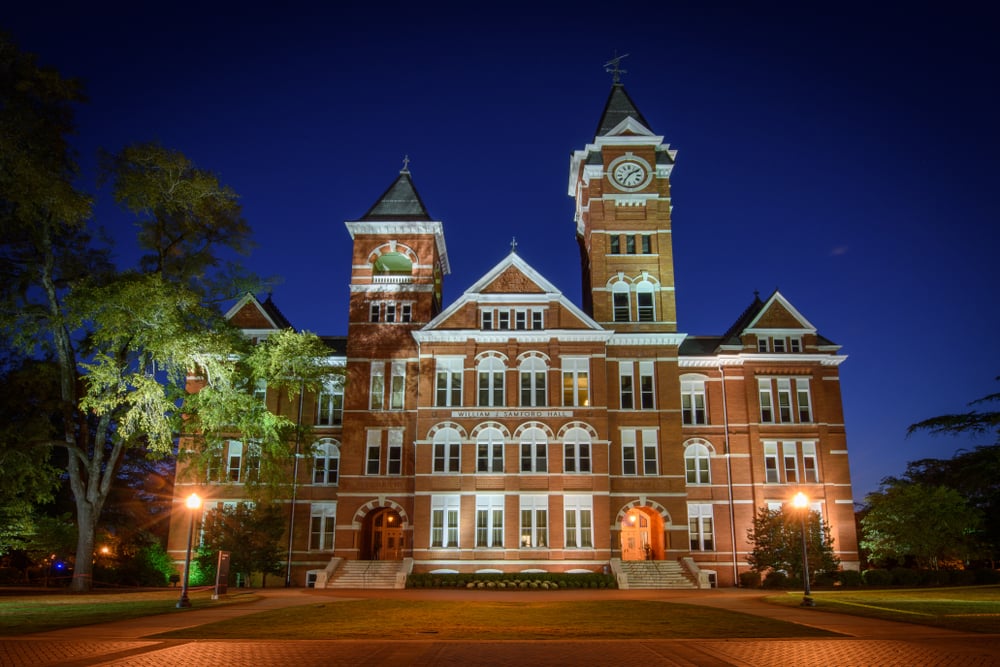
Auburn, AL – September 23: Samford Hall, completed in 1888, sits as a popular landmark on the campus of Auburn University, in Auburn, Alabama on September 23, 2016. (Shutterstock/Kristopher Kettner)
While this Alabama school features a bias education and response team, the unit cannot investigate or sanction students accused of having perpetrated bias. Auburn made headlines in April 2017 for attempting to cancel a speech by white nationalist Richard Spencer. The school cited safety reasons, but U.S. District Judge W. Keith Watkins overturned Auburn’s decision, stating that “discrimination on the basis of message content cannot be tolerated under the First Amendment.”
The incident proved that sound speech policies are often not enough to ensure a free exchange of ideas. Interpretation of those policies is often just as, if not more, important.
2. Claremont McKenna College
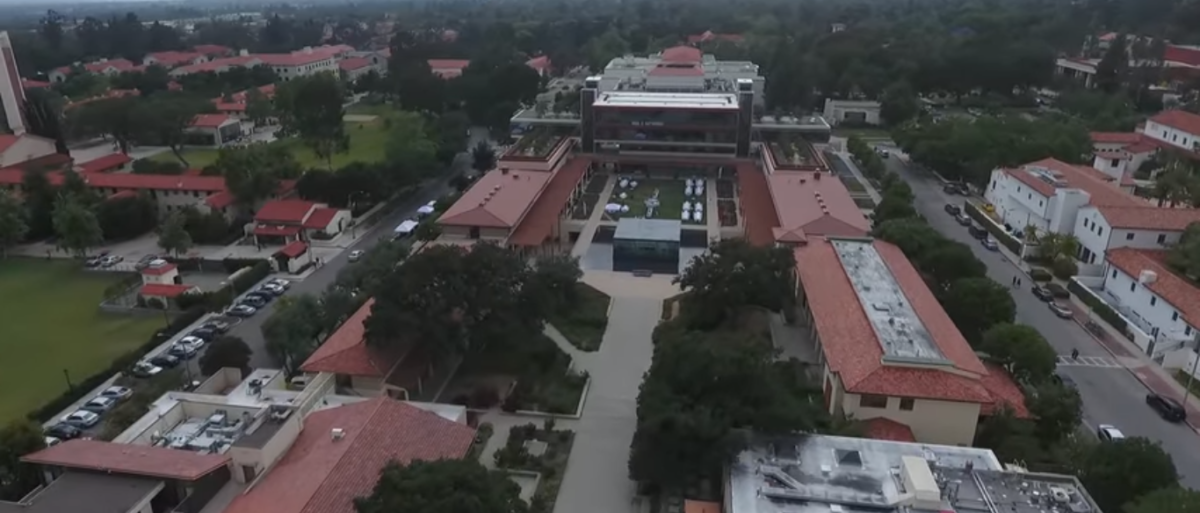
Pictured is an aerial view of Claremont McKenna College. (Photo Credit: YouTube/Claremont McKenna College)
When universities do decide to let speakers with significant opposition take the stage, they have had trouble allowing those speakers to deliver their message without disruption. Claremont McKenna’s disorderly or disruptive conduct policy, if properly enforced, should dissuade students from interrupting speakers like Ben Shapiro, Christina Hoff Sommers and Milo Yiannopoulos.
“Disruptive actions or demonstrations are those that restrict free movement on any of the campuses, or interfere with, or impede access to, regular activities or facilities of any of the Colleges,” reads the policy. “Appropriate Officials at the affected institution(s) may put disruptive or non-peaceful individuals on notice that they are in violation of this policy and file charges against them.”
3. Duke University
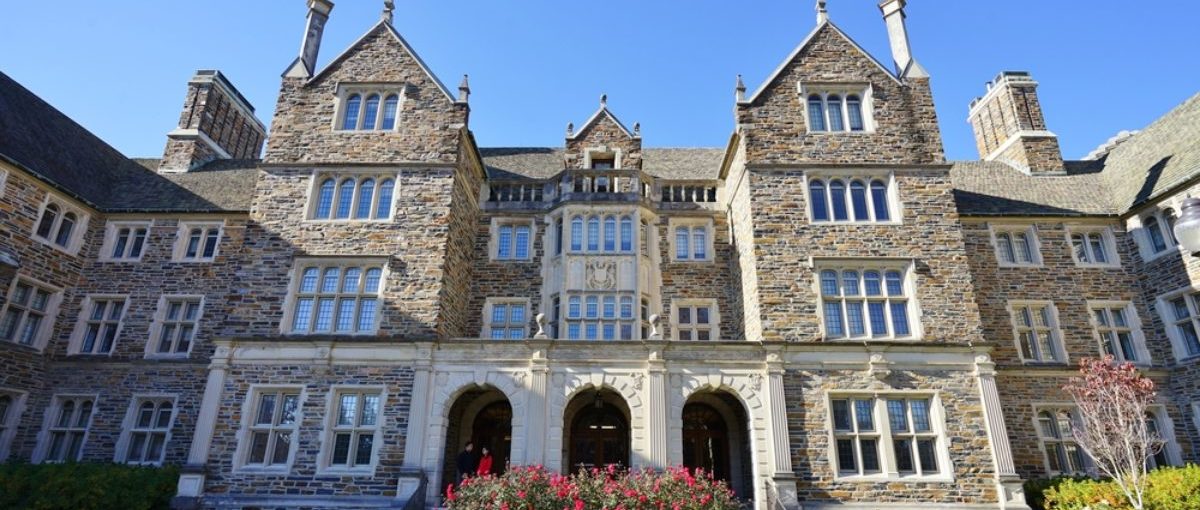
Pictured is a view of the Duke University campus. (Shutterstock/EQRoy)
This private North Carolina school also maintains a bias response team, but also explicitly states that the group has no power to “investigate” or “adjudicate.” It can instead only make suggestions to Duke’s vice president for student affairs.
“The University takes seriously its responsibility to appropriately balance its core values of protecting individual freedoms (e.g., freedom of speech, artistic expression, freedom of association, academic freedom) and ensuring equal and fair treatment of all,” Duke states in its policy.
The school has stayed off of FIRE’s radar for censorious speech policies since April 2010, when FIRE challenged Duke’s sexual misconduct policy for stripping accused students of protections.
4. Edinboro University of Pennsylvania
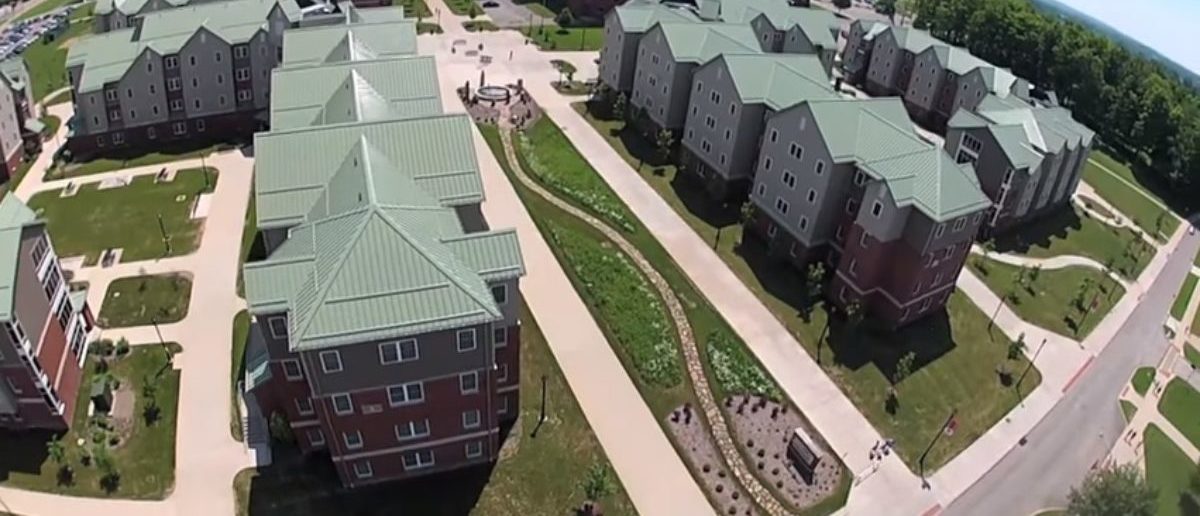
Featured is an aerial view of Edinboro University of Pennsylvania. (Photo Credit: YouTube/Drumheller Creative)
Many schools feature policies that, when interpreted by politically motivated administrators, could stifle students’ abilities to make harmless, offhand jokes.
Edinboro’s harassment policy stipulates that “gender-based harassment, including that predicated on sex-stereotyping, is a form of prohibited sex discrimination if it is sufficiently serious to deny or limit a student’s ability to participate in or benefit from the University’s programs and activities.”
While the “sufficiently serious … programs and activities” clause is susceptible to interpretation, as well as the unique sensibilities of individual students, it also affords some protection to students who make jokes.
5. Emory University
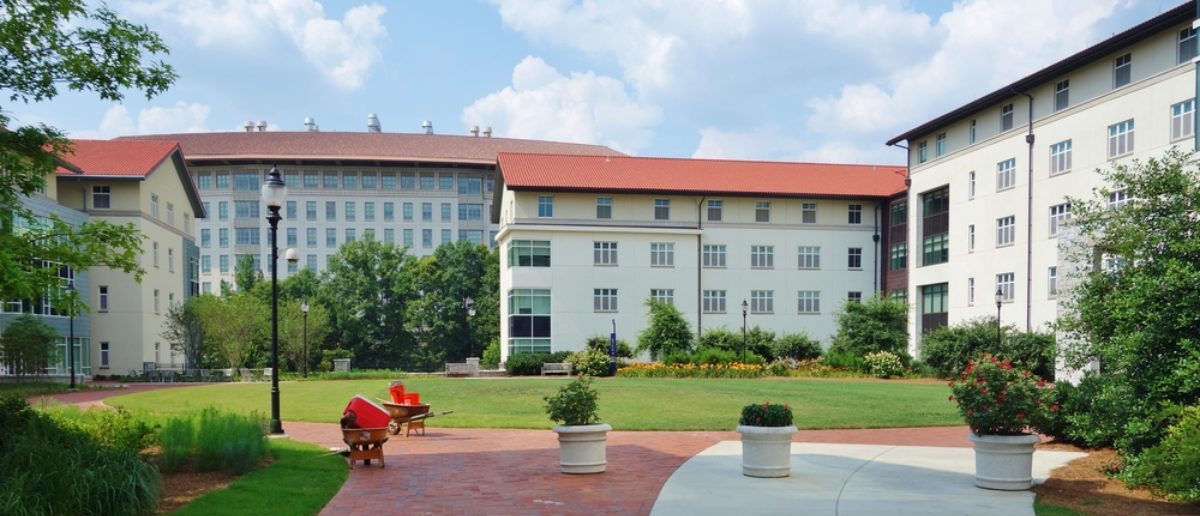
Founded in 1836, Emory University in metropolitan Atlanta is one of the leading universities in the United States, especially in medical and vaccine research. (Shutterstock/EQRoy)
It grows increasingly harder to find schools that don’t have bias response teams, but this Atlanta, Ga. school also makes appropriate safeguards for free speech by explicitly delineating acceptable topics for discourse.
“It is important to note that expressions of opinion on social or political issues (even on controversial questions of race, gender, identity, etc.) are protected under the university’s Open Expression Policy, and therefore cannot be the subject of disciplinary sanctions,” Emory notes.
6. Kansas State University
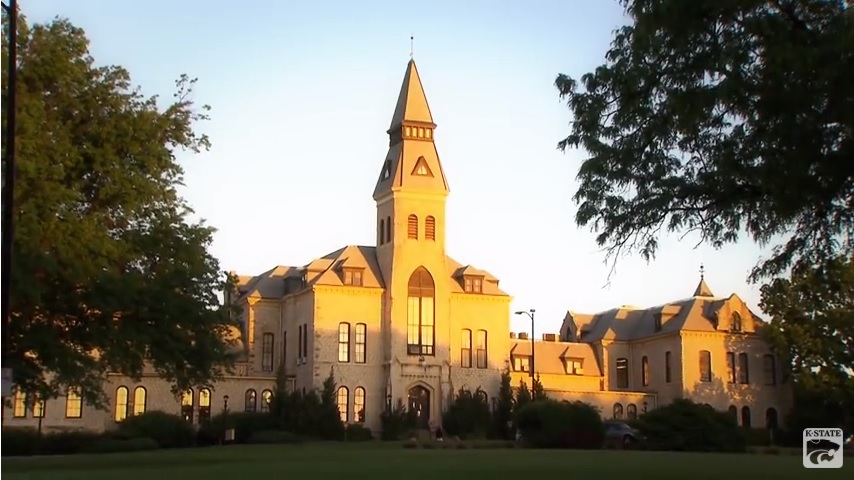
Featured is a building at Kansas State. (Photo Credit: YouTube/K-State)
Kansas State University is the only campus in Kansas to have received a green light rating from FIRE. (RELATED: Here’s How A State College Fully Embraced Free Speech)
Certain colleges have made headlines for prohibiting students from handing out pocket Constitutions or other paraphernalia, but not Kansas State.
“Eligible groups may distribute literature on campus or in any campus building (with the approval of the authority of that building), provided such distribution does not unreasonably interfere with the movement of traffic, classes, or other scheduled activities,” the school’s posting and distribution policy reads.
7. Oregon State University

The student union building at Oregon State University is featured on a foggy autumn morning. (Shutterstock/Bob Pool)
While any sort of subjective language can be manipulated by overbearing administrators to unfairly penalize students exercising their free speech rights, Oregon State makes it tougher to do so. The school’s bullying policy defines bullying by using very strict qualifiers that cannot easily be manipulated.
“Bullying is defined as conduct of any sort directed at another that is severe, pervasive or persistent,” Oregon State says. For the act to be considered bullying, it must “cause the victim substantial emotional distress and undermin[e] the victim’s ability to work, study, or participate in the victim’s regular life activities or participate in the activities of the University.”
8. University of North Carolina — Chapel Hill
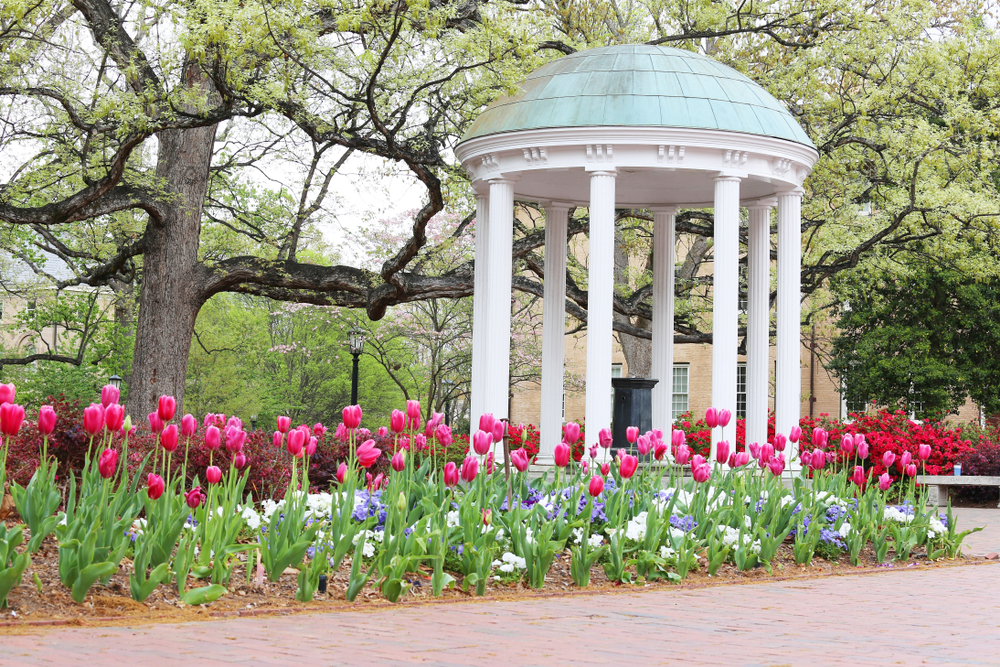
Pictured is the Old Well on University of North Carolina campus. (Shutterstock/ying)
Some schools have confined student political speech to a space comprising less than 1 percent of the total campus size. (RELATED: UMass-Amherst Spikes Speech Zone Policy After Getting Sued)
UNC Chapel Hill is not one of those schools. The public university lists several spaces at which students can hand out paraphernalia, limiting the content of fliers, brochures and other resources distributed on a commercial, instead of a political, basis.
“Any individual or group, whether affiliated with the University or not, may distribute at any open, exterior campus space, the use of which is not otherwise restricted or scheduled under this policy, without registration or advance approval, any written materials on the condition that such materials are designed for informational and not for commercial purposes,” the school says.
9. Western State Colorado University
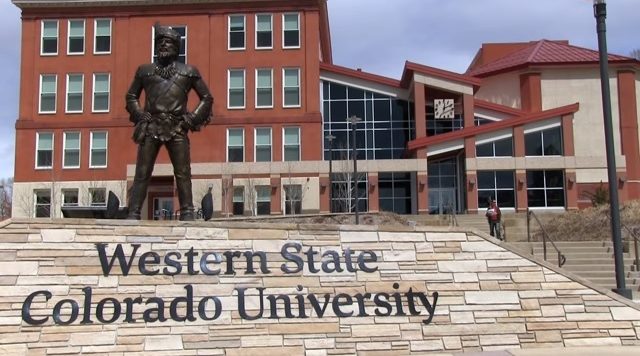
A mountaineer statue is featured at Western State Colorado University. (Photo Credit: YouTube/Western State Colorado University)
WSCU stands out for its relatively lax internet usage policy. Whereas other schools prohibit the dissemination of material that is pornographic or otherwise indecent, this school makes no such provision.
“Free expression of ideas is central to the academic process,” WSCU states. “Western computer system administrators will not remove any information from individual accounts, servers or electronic bulletin boards maintained in individual accounts unless it is determined that: … The information infringes on the rights of others or the normal functioning of the University, because it is disruptive of the university’s computer system, or is otherwise not in compliance with the legal and ethical usage responsibilities outlined in Federal, State, and University policies.”
While WSCU does ban “harassment of other users” on its network, the school, like Oregon State, has harsh standards for what constitutes harassment.
10. University of Chicago
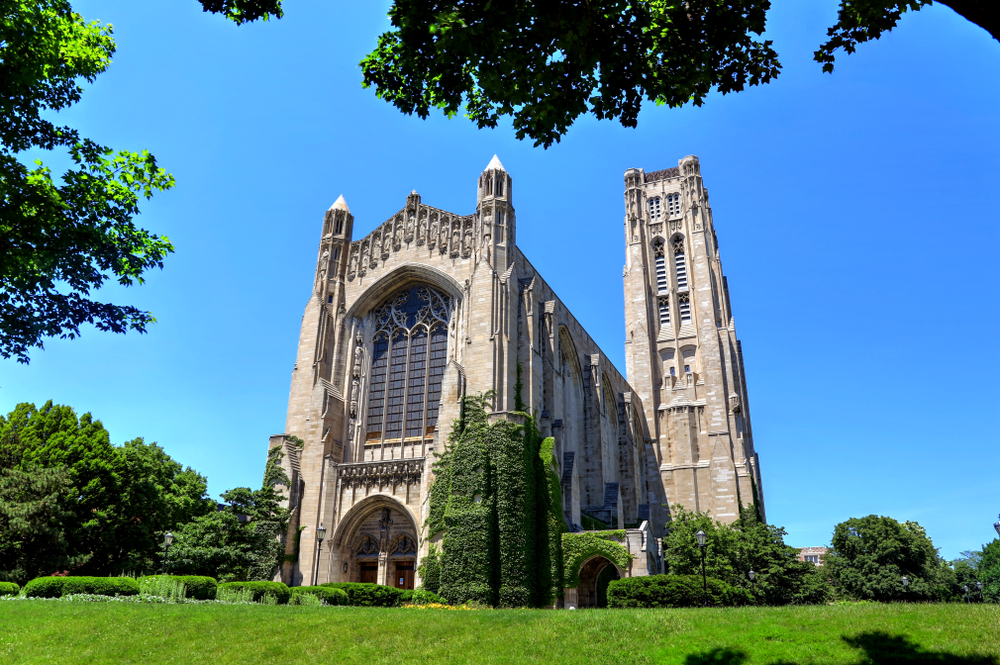
It’s a bright day at the University of Chicago. (Shutterstock/STLJB)
No list on colleges embracing free speech would be complete without the University of Chicago. At least 35 institutions have adopted the school’s 2015 free speech statement, reported Forbes.
“It is not the proper role of the University to attempt to shield individuals from ideas and opinions they find unwelcome, disagreeable, or even deeply offensive,” the university states. The school proceeds to quote from several of its presidents on the issue of free speech.
“Education should not be intended to make people comfortable, it is meant to make them think,” University of Chicago President Hannah Holborn Gray said. “Universities should be expected to provide the conditions within which hard thought, and therefore strong disagreement, independent judgment, and the questioning of stubborn assumptions, can flourish in an environment of the greatest freedom.”
Follow Rob Shimshock on Twitter
Connect with Rob Shimshock on Facebook
Send tips to rob@dailycallernewsfoundation.org.
All content created by the Daily Caller News Foundation, an independent and nonpartisan newswire service, is available without charge to any legitimate news publisher that can provide a large audience. All republished articles must include our logo, our reporter’s byline and their DCNF affiliation. For any questions about our guidelines or partnering with us, please contact licensing@dailycallernewsfoundation.org.












